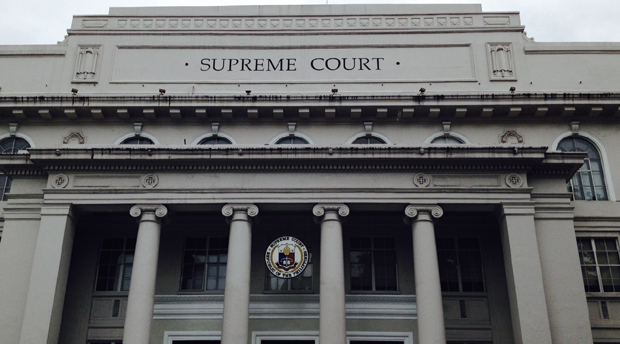Voting 8-5, the Supreme Court on Wednesday affirmed the legality of the Memorandum Circular (MC) No. 8 or the guideline on foreign ownership issued by the Securities and Exchange Commission (SEC) amid allegation that it was tailor-made to accommodate Philippine Long Distance Telephone Co. (PLDT) to comply with the foreign ownership cap.
Under MC No. 8, specifically Section provides that “all covered corporations shall, at all times, observe the constitutional or statutory ownership requirement. For purposes of determining compliance therewith, the required percentage of Filipino ownership shall be applied to both the total number of outstanding shares of stock entitled to vote in the election of directors and the total number of outstanding shares of stock, whether or not entitled to vote in the election of directors.”
In a ruling written by Associate Justice Alfredo Benjamin Caguioa, the high court said that SEC was simply implementing a previous high court 2011 and 2012 ruling that a public utility firm like PLDT must be effectively controlled by Filipinos.
The 2011 and 2012 ruling said that the 60-40 ownership requirement in favor of Filipino citizens must apply separately to each class of shares.
“This uniform application of the 60-40 ownership requirement in favor of Filipino citizens clearly breathes life to the constitutional command that the ownership and operation of public utilities shall be reserved exclusively to corporations at least 60 percent of whose capital is Filipino-owned,” the high court said as it granted the petition filed by the late human rights lawyer Wilson Gamboa, who sought to nullify the sale of the 111,415 PLDT shares held by state-owned Philippine Telecommunications Investment Corp. to Hong Kong-based First Pacific Co. Ltd. for P25.2 billion.
In the petition filed by Atty. Judd Roy, former lawyer of the late Chief Justice Renato Corona, he said the SEC circular allowed PLDT to amend its articles of incorporation so it may issue preferred voting shares then sell the stocks to a “non-complying entity” called BTF Holdings Inc. This, the petition noted, would address the foreign ownership limits in public utilities as set under Section 11 of Article XII of the Philippine Constitution.
“How can a non-complying corporation like PLDT with about 60 percent foreign capital, incorporate a wholly-owned holding company to buy more equity in PLDT, and now claim that the purchase is a purely Filipino equity participation?” Roy said in his petition.
But the high court, in a ruling made public on Wednesday, said there was no grave abuse of discretion on the part of the SEC when it issued MC No. 8.
“The Court found that the SEC did not gravely abuse its discretion as it was simply implementing the Gamboa Decision and the Gamboa Resolution (2011 and 2012 ruling). The Court reviewed the Gamboa Decision and Resolution and reiterated that both defined ‘capital’ broadly but only to apply to shares of stock that can vote in the election of directors and that MC No. 8 simply implemented and is, thus, fully in accordance with Gamboa,” the high court said.
In the same ruling, the high court, however dismissed the second issue on Roy’s petition on whether the SEC gravely abused its discretion in ruling that PLDT is compliant with the constitutional cap on foreign ownership.
“The court found that the SEC had yet to make a definitive ruling on PLDT’s compliance with the capital requirement pursuant to the Gamboa decision and the Gamboa resolution, thus any ruling would be premature.”
“Also, the Court cited that the determination of PLDT’s compliance with the capital requirement is a question of fact best left to the SEC as the court’s is not a trier of facts,” the high court added.
The five Justices who dissented from the decision were Senior Associate Justice Antonio Carpio, Associate Justices Teresita Leonardo De Castro, Arturo Brion, Jose Catral Mendoza and Marvic Leonen. RAM
RELATED STORIES


